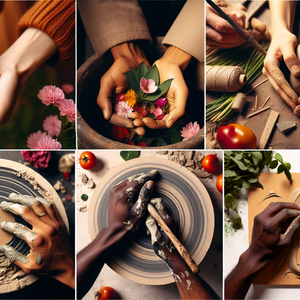Navigating the Nuptials: A Day in the Life of a Wedding Coordinator

A wedding coordinator's day can start as early as 6 a.m., especially if a wedding is taking place. The first priority is often to check in with the venue, ensuring that everything is set up according to the couple's vision. This includes coordinating with various vendors, such as florists, caterers, and musicians, to confirm their arrival times and setup requirements.
Vendor Management
One of the most critical aspects of a wedding coordinator's role is vendor management. This involves not only hiring and communicating with vendors but also troubleshooting any issues that may arise. For instance, a coordinator might find themselves negotiating with a caterer who is running late or working with a florist to adjust floral arrangements due to unexpected weather changes. Real-life coordinators often recount stories of last-minute hiccups—like a cake that didn’t arrive on time—but it’s their ability to remain calm under pressure that ensures the wedding goes off without a hitch.
Budget Planning
Budgeting is another essential responsibility. Coordinators help couples create a budget that reflects their priorities while also ensuring that they get the best value for their money. This means researching vendors, comparing prices, and providing recommendations. For example, a coordinator may suggest a less expensive venue that still offers stunning views, allowing couples to allocate more funds to other elements, like entertainment or photography. A well-rounded understanding of the industry allows coordinators to steer couples toward high-quality vendors that fit within their budget constraints.
Timeline Creation
Creating a detailed timeline for the wedding day is crucial. A coordinator crafts a schedule that outlines every moment from the ceremony to the reception. This includes coordinating the arrival of the bridal party, timing for the ceremony, and even the first dance. It is not uncommon for coordinators to spend hours perfecting this timeline, ensuring that each segment flows seamlessly into the next. A well-structured timeline can make the difference between a chaotic day and a smooth celebration. For instance, a coordinator might allocate specific times for family photos to minimize stress and maximize enjoyment during the reception.
Anecdotes from Wedding Coordinators
Real-life wedding coordinators often have stories that encapsulate the highs and lows of the job. Sarah, a seasoned coordinator, recalls a particularly challenging wedding where the bride's dress arrived late due to a shipping error. 'We had to think on our feet,' she said. 'We managed to stall the ceremony just enough for her to get dressed, but it was terrifying.' This episode highlights the importance of adaptability and quick decision-making in the face of unexpected challenges. On the flip side, the job can also be incredibly rewarding. Another coordinator, Mark, shared a touching moment when the couple surprised their parents with a video montage during the reception, causing tears of joy all around. 'It’s those moments that remind me why I love this job,' he said. These emotional highlights serve as a reminder that the work of a wedding coordinator goes beyond logistics; it is about creating experiences that resonate with people for a lifetime.
Being a wedding coordinator is a multifaceted role that requires a unique blend of skills, creativity, and resilience. From managing vendors and budgets to crafting perfect timelines and troubleshooting unexpected challenges, coordinators play a pivotal role in creating unforgettable wedding experiences. Their dedication often goes unnoticed by guests, but for the couple and their families, the impact is immeasurable. As we peel back the curtain on this dynamic profession, it becomes clear that wedding coordinators are the unsung heroes behind the magic of nuptials, turning dreams into reality one wedding at a time. In a world where every detail matters, the expertise of a wedding coordinator can be the difference between a simple gathering and a dream celebration. Those interested in pursuing a career in this field may find it beneficial to network on platforms like LinkedIn, connecting with established coordinators and companies that specialize in wedding planning. Job titles to consider include Wedding Planner, Event Coordinator, and Bridal Consultant, among others. By understanding the industry's intricacies and developing a strong network, aspiring coordinators can find their own path in this enchanting yet demanding field.
Wedding Planner
Wedding planning agencies, event management companies, or freelance roles
Core Responsibilities
Meet with couples to understand their vision, style, and budget for their wedding day.
Source and negotiate contracts with venues, caterers, florists, and other vendors to ensure quality and budget adherence.
Create and manage detailed timelines for the wedding day, including scheduling vendor arrivals and coordinating the ceremony and reception flow.
Required Skills
Excellent communication and negotiation skills to effectively liaise with clients and vendors.
Strong organizational skills and the ability to multitask under pressure.
A creative eye for design and attention to detail.
Event Coordinator
Event planning firms, hotels, and convention centers
Core Responsibilities
Plan and execute various events, from weddings to corporate functions, ensuring all logistics are managed smoothly.
Collaborate with clients to determine event goals, themes, and budgets while providing expert recommendations.
Oversee on-the-day event operations, including setup, vendor management, and troubleshooting any issues that arise.
Required Skills
Proficiency in project management software and tools to track event details and budgets.
Strong interpersonal skills for building relationships with clients, vendors, and venue staff.
Adaptability to handle unexpected changes and challenges during events.
Floral Designer
Floristry companies, wedding planning firms, and freelance opportunities
Core Responsibilities
Create custom floral arrangements and decor based on client preferences and wedding themes.
Collaborate with wedding planners to ensure floral designs align with overall event aesthetics.
Manage logistics of flower delivery and setup on the wedding day, ensuring timely execution.
Required Skills
A strong understanding of floral design principles and a keen eye for color and composition.
Ability to work within a budget and source flowers from local vendors.
Creative problem-solving skills to adapt designs based on seasonal availability or client requests.
Venue Manager
Hotels, banquet halls, and dedicated wedding venues
Core Responsibilities
Oversee the operations of wedding venues, including scheduling events and managing bookings.
Serve as the primary point of contact for couples, providing tours and discussing venue policies and options.
Coordinate with vendors and event planners to ensure smooth execution of weddings and events held at the venue.
Required Skills
Strong leadership and management skills to oversee staff and operations.
Excellent customer service abilities to address client needs and concerns.
Knowledge of event logistics and local regulations affecting venue use.
Catering Manager
Catering companies, restaurants with event services, and hotels
Core Responsibilities
Plan and execute catering services for weddings, including menu design, food preparation, and service staff management.
Collaborate with wedding coordinators to align catering services with the couple’s vision and budget.
Ensure compliance with health and safety regulations while maintaining high standards of food quality and presentation.
Required Skills
Culinary experience or knowledge of food service management; often requires a culinary degree or certification.
Strong organizational skills to manage catering logistics and staff schedules.
Exceptional communication skills for interacting with clients and coordinating with other vendors.


